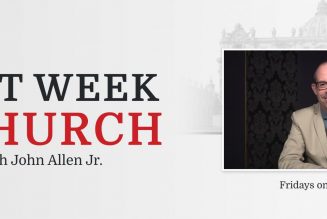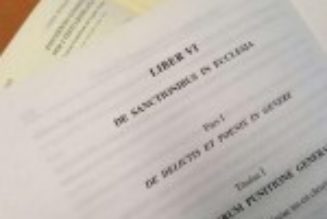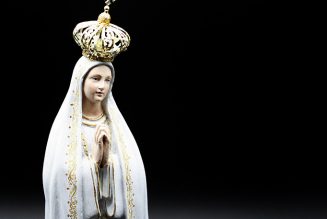
What ails the world at this moment is not merely the usual cocktail of selfishness, narcissism, vanity, and anger. Though the modern world (or at least our computers) seems capable of ever greater feats of mathematical and technical tabulation, and consequently wonders of technology and organization that would have seemed marvelous to any other age, we have our own particular Achilles Heel. Oddly enough for an “information age” that prides itself on having all knowledge at our fingertips, our weakness is itself intellectual: our ability to come to any sane conclusions about political reality or the human condition seems to have evaporated. Too many people don’t believe that the human mind can do much more than calculate—meaning and wisdom seem beyond our grasp. It might seem cold comfort, but the fact that we can laugh at the absurdity of so much nonsense means that, as at any time, there is hope. There is laughter at the nonsensical because sense hasn’t disappeared.
We also have had great modern writers who have helped us diagnose the times. We also have had great modern writers who have helped us diagnose the times. G. K. Chesterton, C. S. Lewis, Dorothy Sayers, Francis Schaeffer all still speak to our times. The prophets of faith and reason continued to come. The anniversary of an encyclical, or teaching document, from one particular prophet, the late Polish Pope St. John Paul II (1920-2005), offers an opportunity to examine how the world might enjoy our technology while again becoming more reasonable.
A few hundred years ago, a prediction of an unreasonable and unreasoning world would have seemed surprising. The great 18th-century German and French Enlightenment thinkers claimed for human reason powers to know all there was to know in this world without faith. The hypothesis of God was no longer necessary! Knowledge of mathematics and the scientific method would deliver us into a world of pure reason in which superstition would be conquered and the world would sing in harmony because its song would no longer be of God and his heaven. Instead of the supernatural, mankind would focus its attention on the natural. Instead of charity, rational planning would provide daily bread for the masses. Instead of a kingdom of God, the brotherhood of man would take its place, free of any notion of a God who judges us.
Yet a funny thing happened on the way to this rationalist utopia. Though math and science would yield marvels of technology, they were themselves often sacrificed on the altar of politics. And curiously this utopian project did not yield much humanity. Rather than universal brotherhood, a godless modernity yielded political regimes that claimed to have no limits on their powers and elite classes who promoted eugenics. The latter operated on the idea that human beings could be bred for quality as one breeds dogs or horses. The former operated on the idea that the state could dispose of human beings as one does with dogs or horses.
Even as the Soviet republics, with their hard “scientific” atheism, were breaking down in the 1990s, the free west was sliding toward a soft agnosticism and a breakdown of confidence in reason itself. Today we see that loss of reason in academics who can’t identify humans in the womb or say what a woman is. We see it in education officials who think that math and science are racist.
There were many figures who saw this coming. One of the most prominent was John Paul II. This past Thursday, September 14, marked the twenty-fifth anniversary of his letter Fides et Ratio, “On Faith and Reason.” This massive 38-thousand-word teaching document that treats at length the relationship between theology and philosophy might seem far removed from the concerns of today. But though the Polish philosopher pope’s language and terms can sometimes seem heady, his treatment of how people in the modern west have gone astray and how they can return to the path of reason is still a gift both to Christians of all stripes and to all those of good will who seek to live a reasonable life amid a culture that often seems given up to agnosticism, moral relativism, and even nihilism.
How did we go astray? How did we get to the point that basic biology and math are distrusted? John Paul’s answer was that humans in the modern world had lost the conviction that humans were called to know “truth that transcends them.” While data and facts had been multiplied, the pope noted, human reason “has wilted under the weight of so much knowledge and little by little has lost the capacity to lift its gaze to the heights, not daring to rise to the truth of being.”
John Paul II believed that we were called to seek out the meaning of life. Without the confidence that there is such a thing, people judge their own humanity “by pragmatic criteria essentially based upon experimental data, in the mistaken belief that technology must dominate all.” No doubt he had in mind in part the tendency of modern public health services and insurance companies to figure out whether medical treatments should be given based on mathematical analyses of projected years of “quality” living.
Given the absurdity of that project, some people will unsurprisingly turn to nihilism, believing that “the search is an end in itself, without any hope or possibility of ever attaining the goal of truth.” John Paul rightly saw that such a belief leads to a human existence focused on “sensations” and the “ephemeral.” He also saw rightly that it led directly a life where commitment was impossible.
The human person’s dignity (and questions such as whether ordinary medical treatments ought to be given them) is not something measurable by calculators and formulas. Dignity is not recognized in a world of nihilism. John Paul believed that our dignity is given in our very nature that seeks out truth. “Everyday life,” John Paul writes, “shows how concerned each of us is to discover for ourselves, beyond mere opinions, how things really are. Within visible creation, man is the only creature who not only is capable of knowing but who knows that he knows and is therefore interested in the real truth of what he perceives.”
But our full rational nature does not stop at simply seeing the truth. Speculative truth is not enough. We are moral creatures. We want practical wisdom and are not fully satisfied until we know what we ought to do. And though our knowledge and our language in such matters will always be limited by our time and place, he writes, nevertheless “the human being can still express truths which surpass the phenomenon of language.” We can know how things really are and we can say it, too. We can trust our reason.
Yet reason in the modern sense of scientific method, empirically verifiable facts, and some math or logic doesn’t cut it. John Paul argues that we need a broader sense of reason, one that might include intuition and even faith. Though secularists will blanch at the last part, John Paul’s argument is that much of our life operates on the basis of a kind of human faith. Rather than doing experiments or fact-checking everything, we rightly accept the testimony of others, living and dead. “…[T]here are in the life of a human being,” he writes, “many more truths which are simply believed than truths which are acquired by way of personal verification. Who, for instance, could assess critically the countless scientific findings upon which modern life is based? Who could personally examine the flow of information which comes day after day from all parts of the world and which is generally accepted as true? Who in the end could forge anew the paths of experience and thought which have yielded the treasures of human wisdom and religion? This means that the human being—the one who seeks the truth—is also the one who lives by belief.”
It is reasonable for us to take many things on faith—including the remarkable claims of Christian faith itself. John Paul’s argument is that the truths of natural science and philosophy are not at all opposed to the truths given in revelation about the Creator God and his son, the savior Jesus Christ.. In fact, it is only when we take those two modes of knowing (natural reason and faith) that we can see the world as a reasonable whole and begin to pierce the mystery of its meaning: “It is the one and the same God who establishes and guarantees the intelligibility and reasonableness of the natural order of things upon which scientists confidently depend, and who reveals himself as the Father of our Lord Jesus Christ.”
Many of the makers of our modern world thought that reason would be freed to soar if faith could be gotten out of the way. What too many have discovered is that reason without faith can’t rise above the facts and figures to get a vision of truth. Without confidence in reason’s ability to understand the meaning and coherence of the whole, we soon lose confidence in our ability to understand seemingly basic facts—we don’t know what a woman is and math is racist!
John Paul II urged us to think differently, to understand that soaring is only possible when faith and reason are together. With that, we can get a vision of the truth, which is really a person and not a thing: “Faith and reason are like two wings on which the human spirit rises to the contemplation of truth; and God has placed in the human heart a desire to know the truth—in a word, to know himself—so that, by knowing and loving God, men and women may also come to the fullness of truth about themselves.”
David P. Deavel teaches at the University of St. Thomas in Houston, Texas, and is a Senior Contributor at The Imaginative Conservative. Follow him on X (Twitter) @davidpdeavel.







